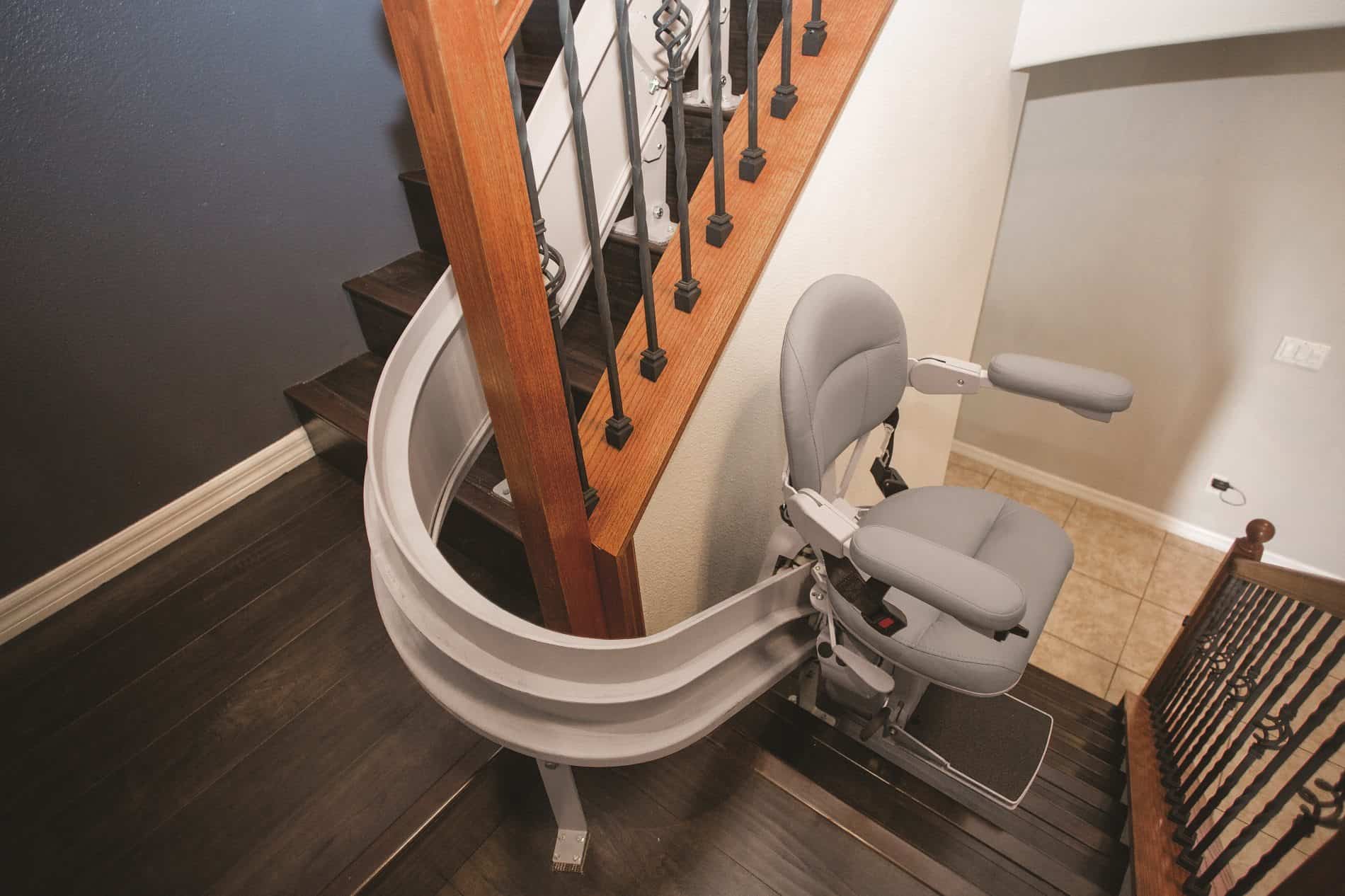Individuals living with Parkinson’s disease face distinct challenges and there are mobility aids well-suited to help. Stairlifts offer features that accommodate those symptoms specifically associated with this chronic condition and help to enhance quality-of-life for the patient, loved ones, and caregivers, too.
National Parkinson’s Awareness Month in April is the perfect time to begin an honest dialogue and learn more about Parkinson’s disease, as well as how it affects those around you. Parkinson’s disease is the fastest-growing neurological condition and is second only to Alzheimer’s disease as the most common age-related neurodegenerative disorder. There are nearly ten million people living with this condition across the globe and mobility aids can help. Industry experts suggest a stairlift to increase mobility and improve quality of overall life.
Some of the ways that stairlifts support those living with symptoms of Parkinson’s disease include:
Accessibility
The physical ramifications and symptoms of Parkinson’s disease can be severe. Individuals living with this chronic condition experience body tremors, slowed movement, and muscle contraction that can make climbing stairs not just difficult, but also potentially dangerous. This can exclude many from using stairs or steps in their home environment, but assistive technology can help. The purpose of a stairlift is to increase accessibility with features that include an easy-to-operate remote, seat belt, and safety sensors, these devices increase access for Parkinson’s patients and more!
Comfort
Parkinson’s disease causes a lot of stiffness, pain, and discomfort. A stairlift is equipped with a comfortable seat and easy-to-buckle seat belt, for a gentle and seamless ride. There is no jarring or bumping. A stairlift ride is as smooth as glass. The platform at the top and bottom of the stair risers accommodates users to get on and off the lift, conveniently without obstacles. Comfort should be a primary concern when investing in mobility aids and equipment; after all, if it is not comfortable, you may be less inclined to use it. Talk to reputable mobility retailers to find out more about the comfort features available for your stairlift.
Ease of Use
Since some fine motor movements can be difficult and uncomfortable for those living with symptoms of Parkinson’s disease, it helps that stairlifts are remarkably easy to use. There are simple controls that make it easy to ascend and descend stairs, as desired. Tremors or impaired mobility do not interfere with easy operation of these amazing devices. Try one for yourself to see how easy a lift is to use.
Adaptability
It should also be said that stairlifts are adaptable and can usually fit on any and all staircases. Got a curved staircase? Are your stairs narrow, winding, or steep? Perhaps you are looking for an outdoor stairlift? There are lifts and solutions for all of these. Stairlifts have come a long way. They are adaptable, reliable, and quiet.
Autonomy and Independence
The loss of independence and freedom caused by symptoms of Parkinson’s Disease can have a profound impact on mental health and wellbeing. It is not uncommon for many Parkinson’s patients to experience depression, anxiety, memory issues, hallucinations, and delusions, due to compromises to their autonomy, often due to mobility issues. The freedom a stairlift provides can be life-changing.
Aging in Place
When it comes to aging in place, a stairlift makes sense. These devices help individuals stay in their own homes, longer, by helping with the above issues of access, ease, and comfort. They help the user preserve the autonomy that they need to age in place, in a home environment of their choosing. A stairlift addresses symptoms not only of Parkinson’s disease but of the normal aging process, like muscle weakness, loss of flexibility, or impairments in vision keeping them safer.
Fall Safety
Perhaps the true underlying reason for getting a stairlift is to reduce the risk of falls. Did you know that falls are the second cause of fatal deaths from unintentional injuries in the world? Symptoms of Parkinson’s disease can exacerbate fall risk, and it has been reported that at least half of those with Parkinson’s will take at least one fall this year. For more than 50% of those who fall, it will happen again.
Overall Safety
Contemporary stairlifts are designed with sensors and safety features that help protect the user and anyone else in the environment. Don’t worry about faulty function or obstacles in the pathway. The stairlift will detect these. Plus, stairlifts can accommodate others using the stairs without creating a barrier or issue. Stairlifts make stairs and steps safer. It is just that simple.
It is estimated that around one million people live with the symptoms of Parkinson’s disease in this country. Pacific Mobility offers stairlifts and mobility aids that preserve autonomy and independence, while also bringing an element of safety to the environment. Talk to the team to discover solutions for accessibility, ease, and convenience today.
President, Husband, Father, Grandfather Graduate of UC Davis- Bio Sci Major- Go Aggies! Jeff has extensive experience in all of Pacific Mobility’s products and services, and specializes in accessibility products as well as stairlifts, ceiling lifts and custom wheel chairs. His hobbies include spending time with family, gardening, mountain biking, exercising and off road motorcycle riding.
24 years as Owner/President of Pacific Mobility Center – selling, installing, and servicing stairlifts, porch lifts, ceiling lifts, pool lifts, handicap ramping, specialty wheelchairs, scooters, power wheel chairs, and other power mobility devices
Certified Environmental Access Consultant since 2008
Licensed General Contractor since 1998
Certified Aging in Place Specialist since 2016
Board Member for Home Access Professionals
Member of Association of Members of the Accessibility Equipment Industry (AEMA)




